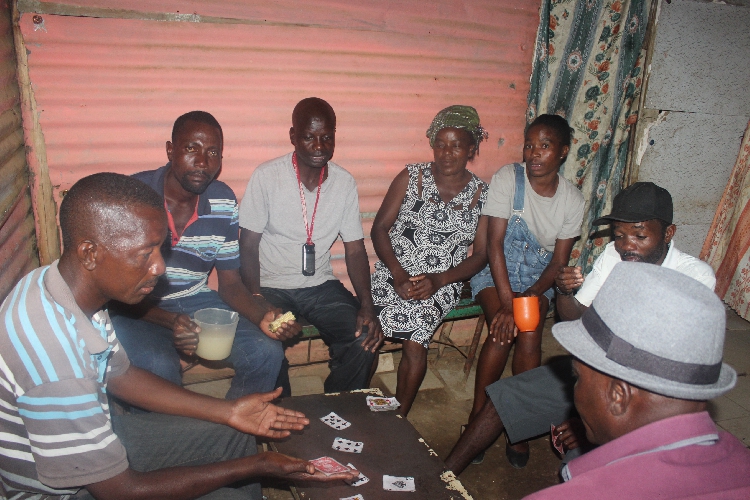IF there ever is one seasonal yet informal business gaining a boost this time of the year, it is the one of selling marula wine.
Well-known as omagongo in the north, where it is a popular traditional wine, in Windhoek it is highly appreciated as it is scarce and/or impossible to make this side.
Profit-driven individuals extract it from marula fruits in the rural north, and bring it for sale to Windhoek.
One such person is 48-year-old Sesilia Mwahafa.
Originally hailing from the Endola village in the Ohangwena region, Mwahafa is a full-time oshikundu seller. But since about 10 years ago, she saw a seasonal business opportunity that she never wants to leave again.
During this time when marula fruits are ripe, she travels to the north and extracts fruits from the marula trees of her homestead, and that of others in her village and nearby villages.
With good rains this year, more fruits are there, she said.
In the north, extracting marula fruits is free, even from neighbours’ trees. Also, the wine is seen as one that people make to sell, but not as expensive as in Windhoek.
Having grown up with it, many people from the north still prefer it over other things in the city, where it is a rarity.
It is around 17h30 on Monday, and I arrive at Mwahafa’s shebeen right after work.
Her small shack at Ombili in Windhoek is surrounded by many people, given the size of the place.
Some of these patrons are dressed in work overalls, and one can tell some are unemployed, hoping to also enjoy from the omagongo paid for by those who can.
About seven people sit inside the shack, surrounding a table and playing a popular card game, sharing their glasses of omagongo.
Although Mwahafa is not the only woman in her area who has been going to the north around this time to collect and sell omagongo, she is popular not only because she has been doing it for years, but because she sells “nice” omagongo too. At least so I was told before I went there.
People chat and drink; both men and women. Drinking omagongo and laughing. Sharing jokes too, and making fun of each other.
But if there is something I observed in the little dark shack close to the main road is the 25-litre containers which I presumed had omagongo inside.
Also, there was one open container of oshikundu which I was offered, but I politely declined and rather asked how much the omagongo was being sold for.
“N$20 for this,” she said, showing me a clear plastic glass.
One wonders how about 20 people are stuffed in that shack. But to my surprise, around 19h00 more people started coming.
I was offered a chair to sit inside the shack, but decided to go outside to join the majority.
I took my chair outside to join the rest as I took a sip on my N$20 one-litre plastic glass of omagongo before I offered it to the man sitting next to me, staring at me with begging eyes.
Although busy serving her customers, the omagongo seller kept coming back to me as I still had more questions to ask.
“I sell oshikundu throughout the year, but during this time of ripe marula trees, I travel to the north to go and extract marula fruits, and bring marula wine to Windhoek to sell, as you can see,” Mwahafa said.
With so many customers, some of whom were putting money together to purchase a glass of the drink, one could see the pride and happiness on the woman’s face.
She reminded me of years back when I helped at my family shop back in my home village and had so many customers on some days.
The pride was so high those days that I would try to hide the smile from showing. For me, selling more on those days meant more pocket money for school after the holidays.
How often do you go the north to get omagongo during this season? I asked, looking at the containers inside from my chair outside.
“Every two weeks,” she said in her low-pitched voice.
“You have children?” I asked again out of curiosity.
Stay informed with The Namibian – your source for credible journalism. Get in-depth reporting and opinions for
only N$85 a month. Invest in journalism, invest in democracy –
Subscribe Now!






